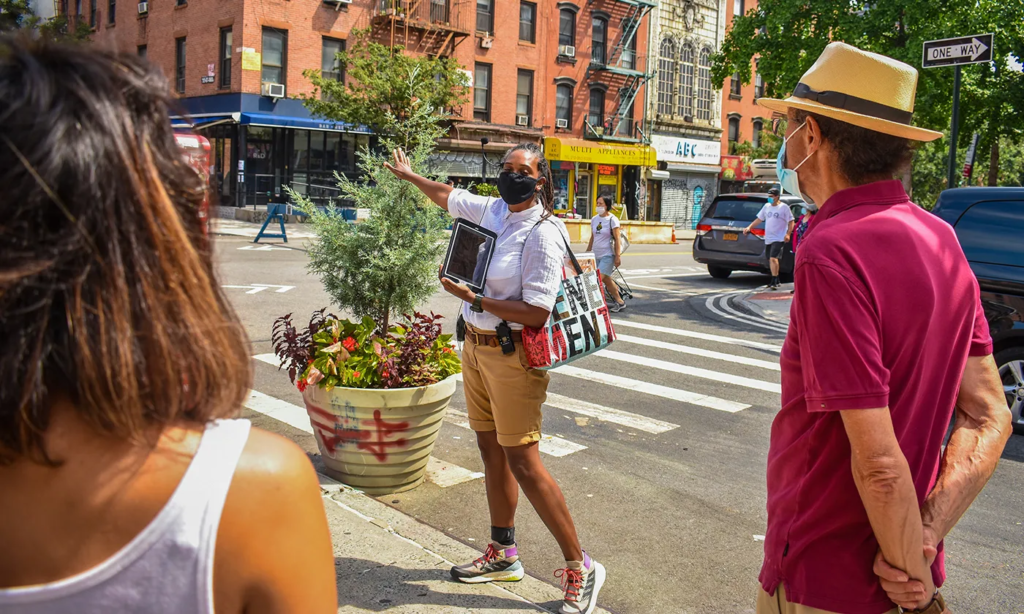Introduction to Call Yersel A Bankie
Clydebank, a town rich in history and culture, sits on the banks of the River Clyde in West Dunbartonshire, Scotland. Call Yersel A Bankie Known for its pivotal role in the shipbuilding industry and its resilient spirit, Clydebank offers a unique blend of historical significance and vibrant local culture. This guide delves into the heart of Clydebank, exploring its history, culture, attractions, and the essence that makes it a place worth visiting.
Geographical Information
Location
Clydebank is located in West Dunbartonshire, just a few miles northwest of Glasgow. Nestled along the River Clyde, it is easily accessible by road, rail, and water, making it a convenient destination for travelers.
Climate
Clydebank experiences a temperate maritime climate, characterized by mild winters and cool summers. Rainfall is relatively consistent throughout the year, with the wettest months typically being October and November.
Best Times to Visit
The best time to visit Clydebank is during the late spring to early autumn months, from May to September. During this period, the weather is more favorable for outdoor activities, and various local festivals and events take place.
Historical Background
Early History
Clydebank’s origins trace back to small rural settlements, with significant development occurring in the 19th century. The town’s growth was spurred by the advent of the shipbuilding industry, which became the cornerstone of its economy and identity.
Industrial Revolution and Shipbuilding
The Industrial Revolution brought profound changes to Clydebank, transforming it into a hub of industrial activity. Shipyards like John Brown & Company played a crucial role, producing some of the most famous ships in history, including the RMS Lusitania and RMS Queen Mary.
World War II Impact
Clydebank was heavily bombed during World War II, suffering extensive damage in the Clydebank Blitz of 1941. Despite this devastation, the town’s resilient spirit saw it rebuild and continue to thrive in the post-war era.
Post-War Development
Post-war Clydebank saw significant reconstruction and modernization. The decline of shipbuilding led to economic challenges, but the town diversified its industries and continued to grow, becoming a vibrant community with a rich cultural heritage.
Cultural Insights
Clydebank’s local customs are deeply rooted in its industrial past and community spirit. Social gatherings, music, and sports play a significant role in the daily lives of its residents.
Local Customs
Traditions
Traditional events, such as the annual Highland Games and local fairs, celebrate Clydebank’s Scottish heritage. These events bring the community together and attract visitors from across the region.
Festivals and Events
Clydebank hosts a variety of festivals and events throughout the year, including the Clydebank Music Festival and the Clydebank Film Festival. These events showcase local talent and provide entertainment for all ages.
Clydebank Dialect
The unique Clydebank dialect, with its distinctive pronunciation and vocabulary, reflects the town’s history and cultural influences. It’s a source of pride for residents and an interesting aspect for visitors to explore.
Must-Visit Attractions
Clydebank Museum and Art Gallery
The Clydebank Museum and Art Gallery offers a fascinating insight into the town’s history, with exhibits on shipbuilding, local industry, and cultural heritage. The art gallery features works by local artists and rotating exhibitions.
Titan Clydebank
Titan Clydebank, a historic shipyard crane, is a symbol of the town’s industrial past. Visitors can take guided tours to learn about its history and enjoy panoramic views of the River Clyde from the top.
Auchentoshan Distillery
Auchentoshan Distillery, one of Scotland’s oldest distilleries, offers tours and tastings of its renowned single malt whisky. It’s a must-visit for whisky enthusiasts and those interested in the distillation process.
Dalmuir Park
Dalmuir Park provides a tranquil escape with its beautifully landscaped gardens, ponds, and walking trails. It’s a perfect spot for a leisurely stroll or a family picnic.
Clyde Shopping Centre
The Clyde Shopping Centre offers a variety of shops, cafes, and entertainment options. It’s a great place to enjoy some retail therapy and experience the local shopping scene.
Activities and Experiences
Walking Tours
Walking tours of Clydebank provide an immersive experience, with knowledgeable guides sharing stories and insights about the town’s history and culture.
River Clyde Cruises
River Clyde cruises offer a unique perspective of Clydebank and its surroundings. Visitors can enjoy scenic views and learn about the area’s maritime heritage.
Local Markets
Clydebank’s local markets, such as the Clydebank Farmers Market, showcase fresh produce, handmade crafts, and local goods. These markets provide a taste of the local lifestyle and support small businesses.
Sporting Events
Sports are a significant part of Clydebank culture, with football, rugby, and other sports being popular among residents. Attending a local match is a great way to experience the town’s community spirit.
Music and Arts Scene
Clydebank has a thriving music and arts scene, with numerous venues hosting live performances, exhibitions, and cultural events. The town’s creative community is vibrant and diverse.
Travel Tips
Accommodation Options
Clydebank offers a range of accommodation options, from budget-friendly hotels to luxury guesthouses. Booking in advance is recommended, especially during peak tourist seasons.
Transportation
Clydebank is well-connected by public transport, with regular bus and train services to and from Glasgow. Local taxis and car rental services are also available for convenient travel within the town.
Packing Advice
Visitors should pack appropriately for the weather, with layers and waterproof clothing being essential. Comfortable walking shoes are recommended for exploring the town and its attractions.
Budget Planning
Traveling to Clydebank can be affordable, with various budget-friendly options for accommodation, dining, and activities. Planning and budgeting ahead can ensure a pleasant and cost-effective trip.
Safety and Health Precautions
General Safety Tips
Clydebank is generally safe for visitors, but it’s always advisable to take standard precautions, such as being aware of your surroundings and keeping valuables secure.
Health Care Facilities
Clydebank has several healthcare Call Yersel A Bankie facilities, including pharmacies, clinics, and hospitals. It’s important to have travel insurance that covers medical expenses.
Emergency Contacts
In case of emergencies, visitors should dial 999 for police, fire, and medical assistance. Having a list of local emergency contacts and the address of the nearest hospital is recommended.
Local Cuisine
Traditional Scottish Dishes
Visitors to Clydebank can enjoy traditional Scottish dishes such as haggis, neeps and tatties, and Scotch broth. These dishes reflect Scotland’s culinary heritage and are a must-try.
Clydebank Specialties
Clydebank has its own culinary specialties, influenced by its industrial history and coastal location. Fresh seafood, hearty stews, and local pastries are popular among residents and visitors alike.
Popular Restaurants and Cafes
Clydebank boasts a variety of dining options, from cozy cafes to fine dining restaurants. Popular spots include The Titan Cafe, Clydebank Diner, and The Twisted Thistle.
Food Festivals
Food festivals in Clydebank celebrate local produce and culinary talent. Events like the Clydebank Food Festival offer a chance to sample a wide range of dishes and enjoy live cooking demonstrations.
Expert Insights
Interviews with Local Historians
Interviews with local historians provide valuable insights into Clydebank’s past and present. Their knowledge helps to preserve the town’s heritage and educate visitors Call Yersel A Bankie about its significance.
Quotes from Cultural Experts
Cultural experts offer perspectives on Clydebank’s unique culture and traditions. Their quotes add depth to the understanding of the town’s identity and its place in Scottish culture.
Personal Stories or Case Studies
Stories from Longtime Residents
Longtime residents share personal stories that highlight the impact of Clydebank’s culture on their lives. These narratives provide a human touch and a deeper connection to the town’s history.
Impact of Culture on Local Businesses
The town’s culture and history influence local businesses in Clydebank. Case studies of successful businesses show how cultural heritage can drive economic growth and community development.
Future Prospects
Development Projects
Clydebank is undergoing various development projects to revitalize the town and preserve its cultural heritage. These projects include urban regeneration initiatives and infrastructure improvements.
Cultural Preservation Efforts
Efforts to preserve Clydebank’s culture involve community programs, heritage sites, and educational initiatives. These efforts ensure that future generations can appreciate and celebrate the town’s history.
Predictions for Clydebank’s Future
Experts predict a bright future for Clydebank, with continued growth and development. The town’s cultural heritage and resilient spirit are expected to drive its progress and attract more visitors.
Conclusion
Clydebank’s rich history, vibrant culture, and welcoming community make it a fascinating destination for travelers. From its industrial roots to its contemporary cultural scene Call Yersel A Bankie, there’s much to explore and appreciate in this resilient Scottish town. Whether you’re interested in history, and culture, or simply enjoying a unique travel experience, Clydebank has something to offer. Plan your visit today and discover the charm of this remarkable town.






Be First to Comment